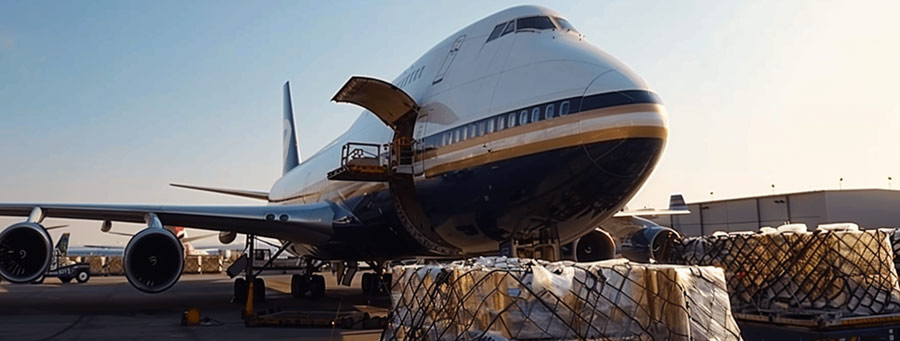
The Reserve Bank of India recently brought a little over 100 tons of gold home.
 Bullion.Directory precious metals analysis 31 May, 2024
Bullion.Directory precious metals analysis 31 May, 2024
By Mike Maharrey
Journalist, analyst and author at Money Metals Exchange
And more gold may be heading back to India in the near future. The Indian central bank repatriated the gold from vaults in the UK.
According to a Times of India report, moving 100 tons of gold over 4,000 miles was “a massive logistical exercise, requiring months of planning and precise execution.”
Transporting 100 tons of gold required specialized aircraft and detailed security arrangements.
According to the latest official data released at the end of March, the RBI held 822 tons of gold with about half of that stored overseas.
An unnamed official told the Times of India the bank decided to move the gold for “logistical and storage diversification” reasons.
“RBI started purchasing gold a few years ago and decided to undertake a review of where it wants to store it, something that is done from time to time. Since stock was building up overseas, it was decided to get some of the gold to India.”
The RBI will also save storage costs paid to the Bank of England.
The Reserve Bank of India has been adding gold to its reserves in recent months. According to the latest data released by the RBI, the Indian central bank increased its gold holdings by 24 tons through the first four months of the year. The RBI added 16 tons of gold to its holdings through the entirety of 2023.
India went on a big gold-buying spree in 2022, adding about 200 tons of gold to its reserves before slowing purchases later in mid-2023.
India is one of several central banks that have repatriated some of their gold holdings for safekeeping in recent years.
According to a World Gold Council survey in 2023, a “substantial share” of central banks expressed concern about potential sanctions after the U.S. and other Western countries froze almost half of Russia’s $650 billion gold and forex reserves in the wake of its invasion of Ukraine. According to the WGC, 68 percent of the banks surveyed said they plan to keep their gold reserve within their country’s borders. This was up from 50 percent in 2020.
One anonymously quoted central bank official told Reuters, “We did have it [gold] held in London… but now we’ve transferred it back to our country to hold as a safe haven asset and to keep it safe.”
Invesco head of official institutions Rod Ringrow told Reuters this reflects a widely held view.
“‘If it’s my gold then I want it in my country,’ has been the mantra we have seen in the last year or so.”
There has been speculation that countries have been moving gold and other assets out of the U.S. in the wake of economic sanctions on Russia, but it’s been difficult to confirm because the Federal Reserve will not release information on the amount of gold in its vaults.
Federal Reserve Chairman Jerome Powell recently evaded Rep. Alex Mooney’s (R-W.Va) questions about the central bank’s foreign gold holdings. The U.S. central bank has also declined to comply with a Freedom of Information Act request for records about such holdings.
As investigative reporter Ken Silva wrote, Headline USA filed a FOIA request with the Fed for records reflecting how much gold the Federal Reserve Bank of New York currently holds in its vault, as well as records reflecting the ownership stake that each of FRBNY’s central bank/government clients have in that gold following Powell’s evasive response. The FOIA request also sought records about the Fed’s gold holdings prior to Russia’s February 2022 invasion of Ukraine.
The gold repatriation trend started long before the West slapped sanctions on Russia. In 2019, Poland brought home 100 tons of gold. Hungary and Romania also repatriated some of their gold reserves around that same time. In the summer of 2017, Germany completed a project returning roughly half of its gold reserves back inside its borders. In 2015, Australia launched efforts to bring half of its reserves home. The Netherlands and Belgium have also initiated repatriation programs.
This gold repatriation trend underscores the importance of holding physical gold free from counterparty risk.
If you store your gold and silver with a third party could lose your metal through theft, fraud, or an act of God. Of course, you could lose silver and gold stored in your home the same way (except for fraud), so you have to weigh the risk of using third-party storage and keeping large amounts of silver and gold at home.
If you opt for third-party vaulting, it is important to choose a trusted company.
Money Metals offers secure precious metals storage in its own state-of-the-art facility.
Mike Maharrey


Mike Maharrey is a well-known author, journalist, financial analyst and writer at Money Metals Exchange, one of our top-rated US dealers and two-times winner of Bullion Dealer of the Year
He holds a BS in accounting from the University of Kentucky and a BA in journalism from the University of South Florida. Mike also serves as the national communications director for the Tenth Amendment Center and the managing editor of the SchiffGold website.
This article was originally published here
Bullion.Directory or anyone involved with Bullion.Directory will not accept any liability for loss or damage as a result of reliance on the information including data, quotes, charts and buy/sell signals contained within this website. Please be fully informed regarding the risks and costs associated with trading in precious metals. Bullion.Directory advises you to always consult with a qualified and registered specialist advisor before investing in precious metals.










 Material provided on the Bullion.Directory website is strictly for informational purposes only. The content is developed from sources believed to be providing accurate information. No information on this website is intended as investment, tax or legal advice and must not be relied upon as such. Please consult legal or tax professionals for specific information regarding your individual situation. Precious metals carry risk and investors requiring advice should always consult a properly qualified advisor. Bullion.Directory, it's staff or affiliates do not accept any liability for loss, damages, or loss of profit resulting from readers investment decisions.
Material provided on the Bullion.Directory website is strictly for informational purposes only. The content is developed from sources believed to be providing accurate information. No information on this website is intended as investment, tax or legal advice and must not be relied upon as such. Please consult legal or tax professionals for specific information regarding your individual situation. Precious metals carry risk and investors requiring advice should always consult a properly qualified advisor. Bullion.Directory, it's staff or affiliates do not accept any liability for loss, damages, or loss of profit resulting from readers investment decisions.

Leave a Reply